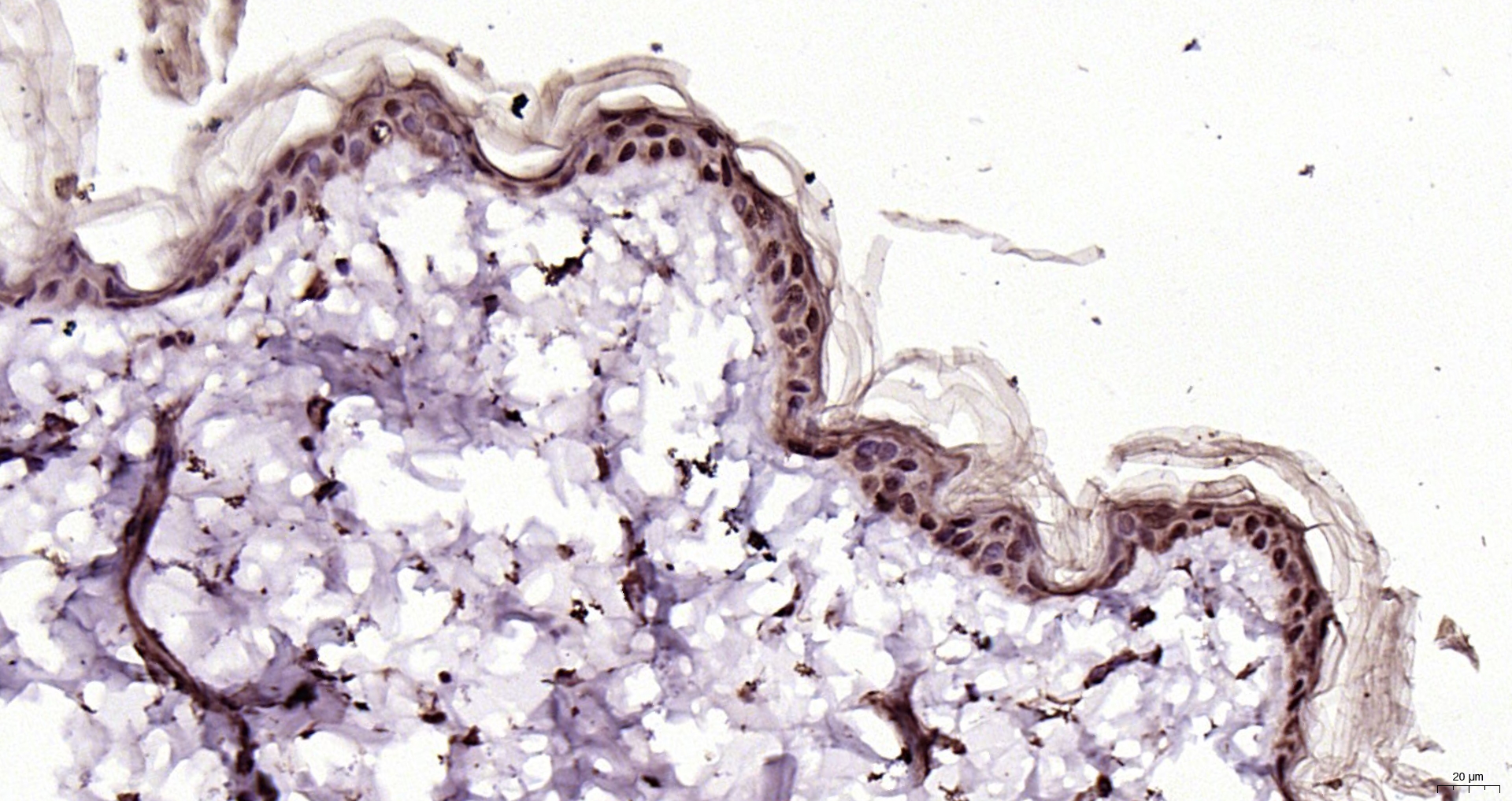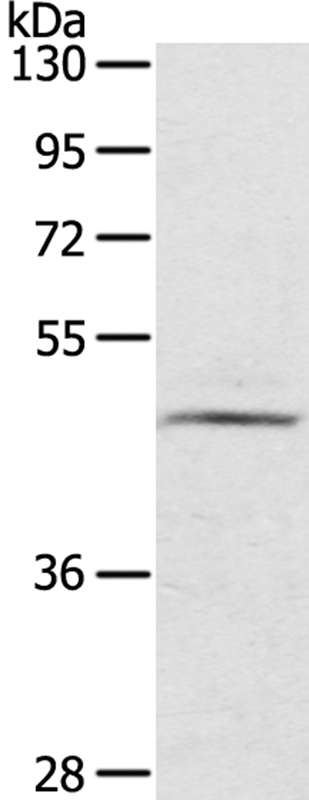LASS3 antibody, C-term
GTX88586
ApplicationsWestern Blot
Product group Antibodies
ReactivityHuman, Rat
TargetCERS3
Overview
- SupplierGeneTex
- Product NameLASS3 antibody, C-term
- Delivery Days Customer7
- Application Supplier NoteWB: 2-3microg/ml. *Optimal dilutions/concentrations should be determined by the researcher.Not tested in other applications.
- ApplicationsWestern Blot
- CertificationResearch Use Only
- ClonalityPolyclonal
- Concentration0.50 mg/ml
- ConjugateUnconjugated
- Gene ID204219
- Target nameCERS3
- Target descriptionceramide synthase 3
- Target synonymsARCI9, LASS3, ceramide synthase 3, LAG1 homolog, ceramide synthase 3, LAG1 longevity assurance homolog 3, dihydroceramide synthase 3, sphingosine N-acyltransferase CERS3, ultra-long-chain ceramide synthase CERS3, very-long-chain ceramide synthase CERS3
- HostGoat
- IsotypeIgG
- Protein IDQ8IU89
- Protein NameCeramide synthase 3
- Scientific DescriptionThis gene is a member of the ceramide synthase family of genes. The ceramide synthase enzymes regulate sphingolipid synthesis by catalyzing the formation of ceramides from sphingoid base and acyl-coA substrates. This family member is involved in the synthesis of ceramides with ultra-long-chain acyl moieties (ULC-Cers), important to the epidermis in its role in creating a protective barrier from the environment. The protein encoded by this gene has also been implicated in modification of the lipid structures required for spermatogenesis. Mutations in this gene have been associated with male fertility defects, and epidermal defects, including ichthyosis. Alternative splicing results in multiple transcript variants encoding different isoforms. [provided by RefSeq, Aug 2015]
- ReactivityHuman, Rat
- Storage Instruction-20°C or -80°C,2°C to 8°C
- UNSPSC12352203






